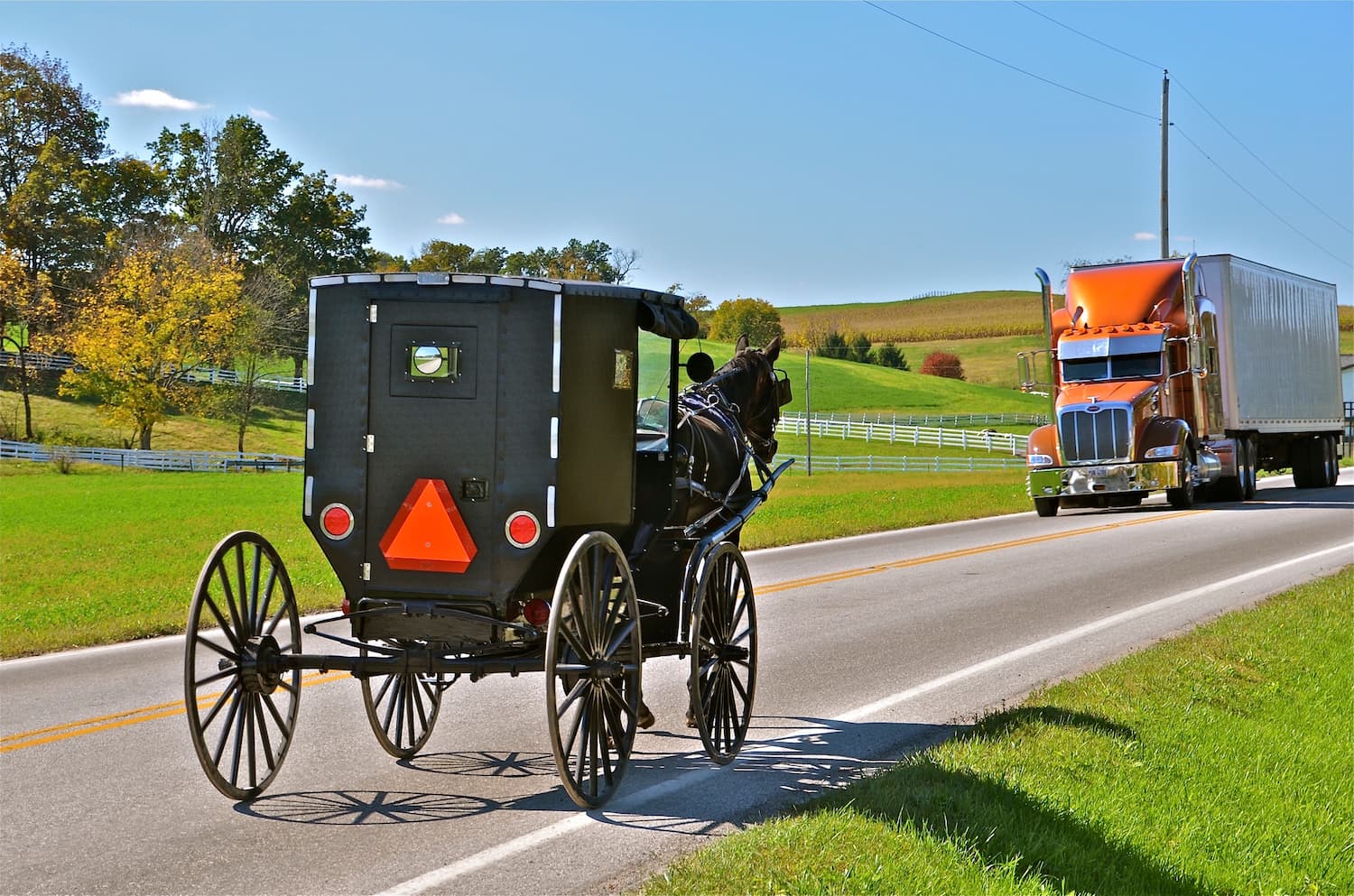Prefer to listen to this piece?
A quick disclaimer: This piece is not intended as professional advice on tax issues but rather to give the reader “the gist” of Federal excise taxes (FET).
The Federal Excise Tax—Demystified For Us Humans
Before we get into making heads-or-tails of the Federal Excise Tax and its implications on the heavy-duty trucking and trailer industries, let’s hear the definition of the FET straight from the horse’s mouth—in this case, the IRS:
“Excise taxes are taxes that are imposed on various goods, services and activities. Such taxes may be imposed on the manufacturer, retailer or consumer, depending on the specific tax.”
(nods off)
Whoops, sorry about that. I must have drifted off.
We realize that their definition is about as clear as coffee, so in this piece, we’re going to attempt to summarize:
Let’s begin with the definition of an excise tax.
Excise taxes are generally taxes targeted at those individuals utilizing certain public services or having a more significant impact on them than others. For instance, there may be an excise tax on fuel or trucking because drivers are most likely to use public roads more than, say, Rollerbladin’ Dave. You win again, Rollerbladlin’ Dave.
In another somewhat similar vein, excise taxes may fall on industries deemed excessive—what some legal minds may classify as less essential.
For example, excise taxes may apply to the indoor tanning and tobacco industries because, unlike other industries, they are in the turning-people-into-roasted-potatoes business. A nap in a tanning bed or a pack of smokes may be deemed excessive and even somewhat irresponsible to the legal community—especially if you’re smoking in the tanning bed, but we won’t go there.
In many cases, excise taxes tend to be used to fund the very infrastructures the payers use more than the average person—such as fuel tax for road maintenance, and the like.
We know what you’re thinking and the answer is yes—the Amish are likely the only ones driving on public roads without paying excise taxes. Pure horsepower, baby!
Some other examples of items subject to excise taxes include:
- Plane tickets
- New and used vehicles (at different rates)
- Alcoholic beverages
- Types of gambling
- Etc.
A Federal Excise Tax (FET) is an excise tax imposed by the Federal government targeting specific goods and services. States can impose their own excise taxes as well and at various levels.

One of these drivers definitely pays a FET and the other definitely does not.
“Aren’t we already paying taxes on our gas and cigarettes?”
It’s true—unless you’re tax-exempt, you’re likely paying sales tax in addition to an excise tax on your pack of Turkish Royals.
There are a handful of differences between an excise tax and a sales tax.
- Excise taxes are more particular about the items or services being taxed. While you may need to pay an excise tax on a bottle of whiskey, you won’t on a loaf of bread.
- While sales taxes may be calculated as a percentage of the cost of the purchase, many excise taxes are calculated per unit purchased. That means per gallon of gas, per pack of cigarettes, and the like. This makes excise taxes somewhat of a hidden, indirect tax.
Not all excise taxes are going to show up on your receipt. This leads to our next question.
Determining who pays a FET depends on what you mean by “paying”—who files the paperwork or who is left with the lighter wallet?
When the Customer Foots the FET
Technically, a FET is paid to the government at the seller level—the manufacturer, dealer, and the like. This is the side of the transaction responsible for filing the necessary paperwork with the IRS. However, most on the seller side pass the cost of excise taxes onto the buyer by including it in the out-the-door price of their goods and services. For example, if you look at your itemized receipt from the gas station, you won’t see an “Excise Tax” on there anywhere. Instead, this price has been factored into the final price of filling up your tank.
The consumer rarely sees an itemized receipt informing them of just how much of the price that they’re paying is going toward an excise tax. This is allowed by the tax code—even if excise taxes are quite high. Invoices on some products, however, may specify an itemized excise tax.
For retailers whose industries require a FET, they need to file a Form 720 and pay excise taxes to the IRS every quarter. This can also be performed on their behalf through a designated third party.
Quarter Excise Tax Deadlines (on business days)
- Quarter 1: January-March Deadline: April 30
- Quarter 2: April-June Deadline: July 31
- Quarter 3: July-September Deadline: October 31
- Quarter 4: October-December Deadline: January 31
Though you’re welcome to lick a stamp and send your excise tax forms through the postage service, the IRS strongly encourages electronic filing through an approved source. This has the benefit of receiving confirmation that your filing has been received. (“Phew, that was close.”)
There are various Federal excise taxes that impact the commercial trucking and trailer industries—some for truck owners and others for commercial truck and trailer dealers.
The Heavy Highway Vehicle Use Tax
There is a Federal excise tax called the “Heavy Highway Vehicle Use Tax”—an annual tax paid on heavy highway trucks with a gross weight of 55,000 pounds or more, driven on public highways. For this, Form 2290 is required. The payer of this excise tax is more apparent—usually matching the name on the truck’s title.

Retail FETs for Commercial Truck & Trailer Dealers
So, you wouldn’t think that heavy-duty trucks and their corresponding trailers would fall into the same taxable product category as cigarettes, booze, and sports gambling...right? Well, according to tax law, they do. Heavy-duty trucks and trailers (not just commercial!), as well as their associated parts, are typically subject to a 12% FET—as of the publishing time of this piece. As we mentioned above, this tax is typically passed on to the customer.
FET Specifics for the Retail Tax on Heavy Trucks, Trailers, and Tractors
For those who would like to dive deeper into Federal excise tax requirements, the IRS has created an immensely helpful guide entitled Publication 510 — “Excise Taxes (Including Fuel Tax Credits and Refunds). If you turn to chapter 6 on page 33, you can see a full explanation of “Retail Tax on Heavy Trucks, Trailers, and Tractors”—which not only contains requirement breakdowns but also easy-to-digest scenario examples. Way to go, IRS! (Yep, I never thought I'd ever say that.)
In the past, dealerships have had to manually account for the FET rate on their transactions and update the figures on invoices and other transactional documentation. These days, many dealership management systems can automatically calculate the FET for dealers.
To reiterate: This piece is not intended as substitution for professional legal or financial advice and may or may not reflect the most current laws. Please consult a certified professional before making any financial or tax-related decisions.
FET Calculation for Heavy Trucking & Trailer Dealerships
For dealerships in the heavy-duty truck and commercial trailer industries, My Little Salesman allows dealers to simply plug in the current FET rate into the Structure section of their Deals panel to include the correct FET amount on a summary for every transaction. This is just one of the many handy features designed to make life easier for sales professionals in the heavy equipment, commercial truck, and trailer industries from your friends at My Little Salesman.
Transaction Management Made Easy
For a peek under the hood of our robust-yet-ridiculously-intuitive Deals system, we’ve created a short video walkthrough for you to enjoy.